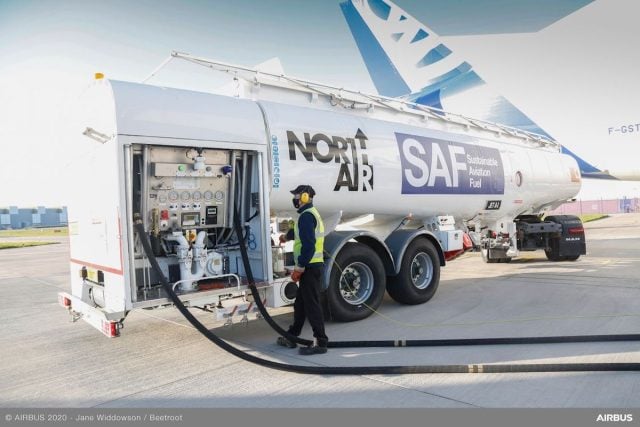IAEG’s Work Group 13 Takes Off Evaluating 100% SAF Compatibility
WG13 to engage aviation fuel producers, airports and airlines to explore the transition process to 100% SAF.

The International Aerospace Environmental Group (IAEG) announced on May 15, 2024, the formation of Work Group 13 (WG 13).
This group comprises leading aerospace industry players including Airbus, Boeing, Dassault Aviation, GE Aerospace, Pratt & Whitney, Rolls-Royce, and Safran.
WG 13, acknowledging SAF as crucial for achieving net-zero CO2 emissions by 2050 in aviation, aims to collaboratively evaluate the technical compatibility of 100% SAF with various airplane systems.
Boeing Leads Collaboration
Led by Boeing with Airbus as the deputy lead, the IAEG team will work together to coordinate testing efforts related to 100% SAF.
These tests will be conducted voluntarily for consideration and potential use by WG 13 members.
The findings from this collaboration are intended to inform ASTM International as it develops new specifications for pure SAF.
Beyond Aircraft Systems
The IAEG team has outlined it plans to engage with stakeholders across the aviation infrastructure, including fuel producers, airports, and airlines.
This engagement aims to understand the necessary steps to support a smooth transition to widespread adoption of 100% SAF.
Industry Leaders Express Optimism
Industry leaders involved in the initiative expressed optimism about the collaboration’s potential:
“This collaboration will help prepare the broader aviation ecosystem for 100% SAF capabilities, as part of the aviation industry goal of achieving net zero CO2 emissions by 2050,” said Ryan Faucett, Boeing Vice President of Environmental Sustainability and IAEG Board Member.
“Achieving up to 100% SAF capability for commercial and military aircraft fleets will require a high level of industry collaboration,” said Dr. Bruno Costes, Airbus Senior Director of Institutional Relations and Standardisation and IAEG Chair.
Airbus will contribute its expertise from past multiple demonstrations involving 100% SAF flights and its technical knowledge in developing new fuel standards, Dr.Costes added, “SAF will be a key enabler for the decarbonisation of the sector by 2050.”
